
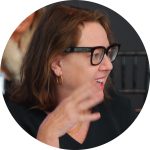
In this edition of the Wellness Q&A Series Beth McGroarty, VP, Research & Forecasting, Global Wellness Institute asks:
Which travel segments will rebound first?
Has the pandemic changed Six Senses’ future focus and offerings?
What destinations can we next look forward to?
What’s underway for the US?
Q&A with Neil Jacobs, CEO, Six Senses Hotels Resorts Spas
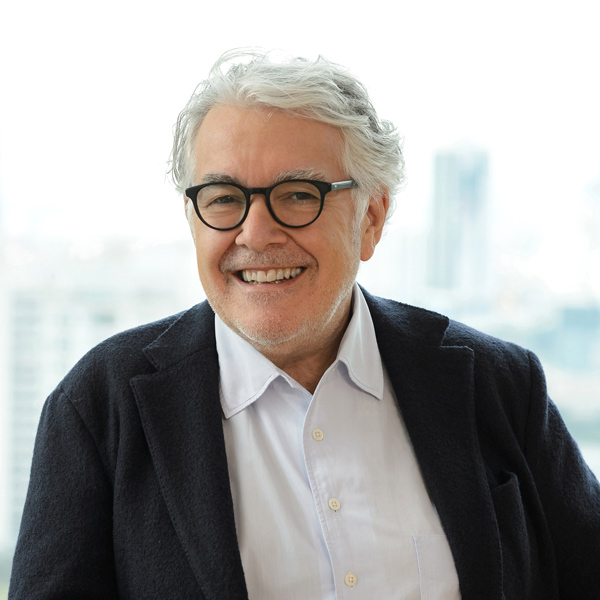
In hospitality, Neil Jacobs needs no introduction, with over three decades of executive experience in operations and development. Under his leadership, Six Senses has done more to transform the idea of “luxury hospitality” from excessive, wasteful amenities at some gilded palace to true sustainability and human wellness than any other brand. He and the Six Senses team successfully negotiated the company’s acquisition by IHG in 2019, and they currently have 19 resorts worldwide, with an ever-expanding pipeline. Neil is one of the smartest, most successful, and most honest thinkers in the travel space.
VP, Research & Forecasting, GWI, Beth McGroarty: What do you think travel looks like in the months ahead? Which segments will come back first?
Neil Jacobs: It’s going to take a while for people to start long-haul travel; through this year and into the first part of next, it’s going to be primarily domestic and regional. So, not too bad for big countries like the US where you have a huge drive market anyway, and you’ll see a lot of people driving around cross-border in Europe. In Asia, you have to focus on domestic markets, but as soon as countries open up, the Chinese will be the first to move internationally, and you’ll see quite a bit of Asian travel to Europe and the US.
We believe that the high-end/luxury segment will rebound first. People that have the financial ability are ready to move; everyone’s fed up; they want to go places. The private plane industry is going to do well.
Properties in remote and private locations will be the first products to come back in what could be a long, socially distanced future. Most of Six Senses’ properties are on the villa model and occupy large pieces of land (as opposed to hotel buildings with rooms, corridors and elevators). We have the space for people to have their own space and to move about in nature. This model will resonate.
We’re having a lot of inquiries as to whether it’s possible to buy out the whole place for big group and family events. It’s not just the occasional inquiry; there’s a lot of noise around this. And it can work at our smaller properties, such as Six Senses Zil Pasyon in the Seychelles, with its 30 large villas and 3 amazing residences.
A lot of travel pundits are arguing that people have short memories, and behavior will ultimately go back to what it was pre-coronavirus. We don’t agree; we think behaviors will shift. Our two primary pillars are wellness and sustainability, and we believe that companies that are committed in these areas will benefit from a much quicker recovery. Travelers are looking for an offer within any hotel that makes their health and wellbeing the key consideration. They’re simply much more conscious of that then they were pre-virus. We all know what the growth in the wellness travel industry has been over the last few years, and this is going to push it even further. So, we’re really positive about the future!
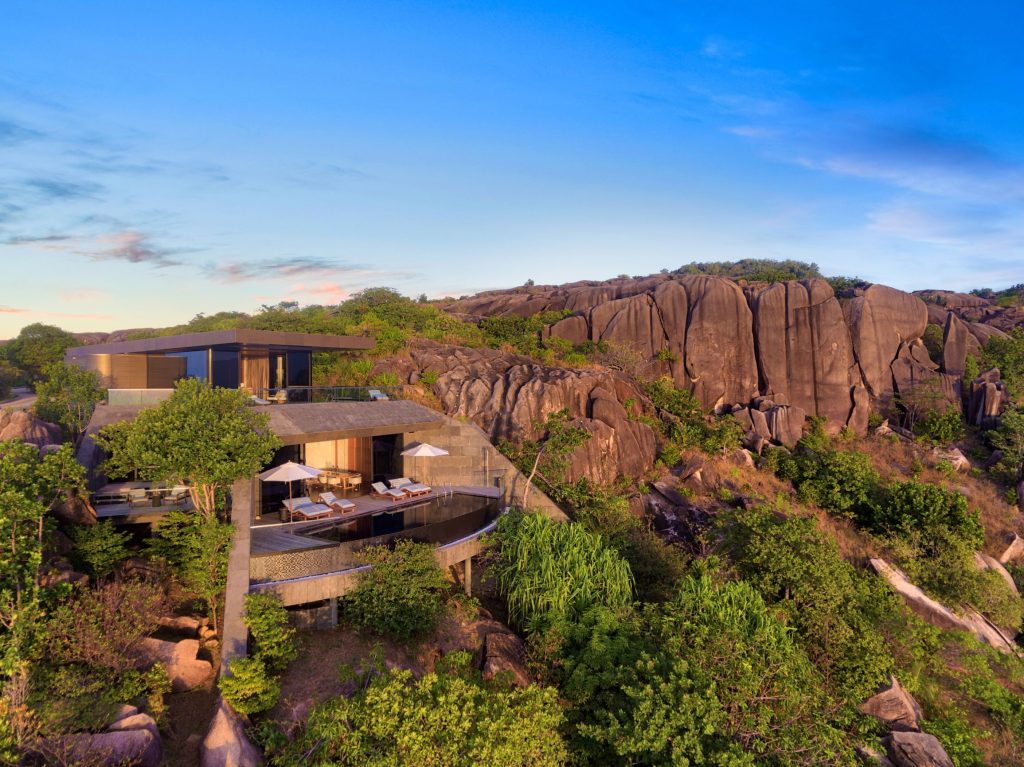
GWI: Did you have to close all properties during the pandemic? Where are you now? How is business?
Jacobs: We quickly (over 3–4 weeks) had to close 15 of our 19 resorts, so a real shock. Right now, everything is moving so fast: It’s a different conversation—and we put new things into action every single day. We can only learn from what we really see happening because there are too many opinions. We decide one thing in the morning, and it’s likely to change tomorrow. We’re going to open as soon as we can in as many places as we can, when it makes sense and when that country can take in people. We’re looking at the possibility of quick testing for arriving guests and insisting on documentation showing they’re virus-free a couple of days before arrival. Meanwhile, employees are masked, and social distancing is happening alongside a comprehensive protocol around health and safety.
We’re super encouraged by the levels of business we’re doing in places where we’re reopening—it’s stronger than we anticipated. We’ve reopened two hotels in Vietnam, and while people can’t enter the country from overseas, we’re seeing great domestic and expat business. During a big May holiday weekend, we were sold out, and we saw 89 percent occupancy for all of May. We closed our property in China but quickly reopened, and it’s been doing well with the domestic market. In Bali, we put together an enticing deal for locals in May, and reservations have been buoyant. Six Senses Douro Valley just reopened, and bookings are strong.
Every country is different. The Seychelles has no local market, but with the Middle East right down the road, when that region opens, we will generate business. Bhutan purposely limits visitors always, but even if they reopen, I don’t think we will because our #1 source market is the US, and I don’t see Americans traveling there until the end of the year or beyond. So we’re promoting in alternative market sources and will keep doing much more in Asia because they will move before the West with international travel. We’re experimenting with how much business we need to stay open because it’s always better to stay open, and nothing else helps more in keeping our people employed.
One can always talk numbers, but we’ve seen the pent-up demand firsthand in how people react when they’re now arriving at our properties. They want to rip off their masks and be free, jump in the water, be with people, be part of something. Sure, privacy is big, but the desire to connect with people is bigger. So much so that we had to step back and say, hey, we’re thrilled to have you, but we all have to observe social distancing.
GWI: Has the crisis changed your ideas about the future of Six Senses? Your offerings? Your focus?
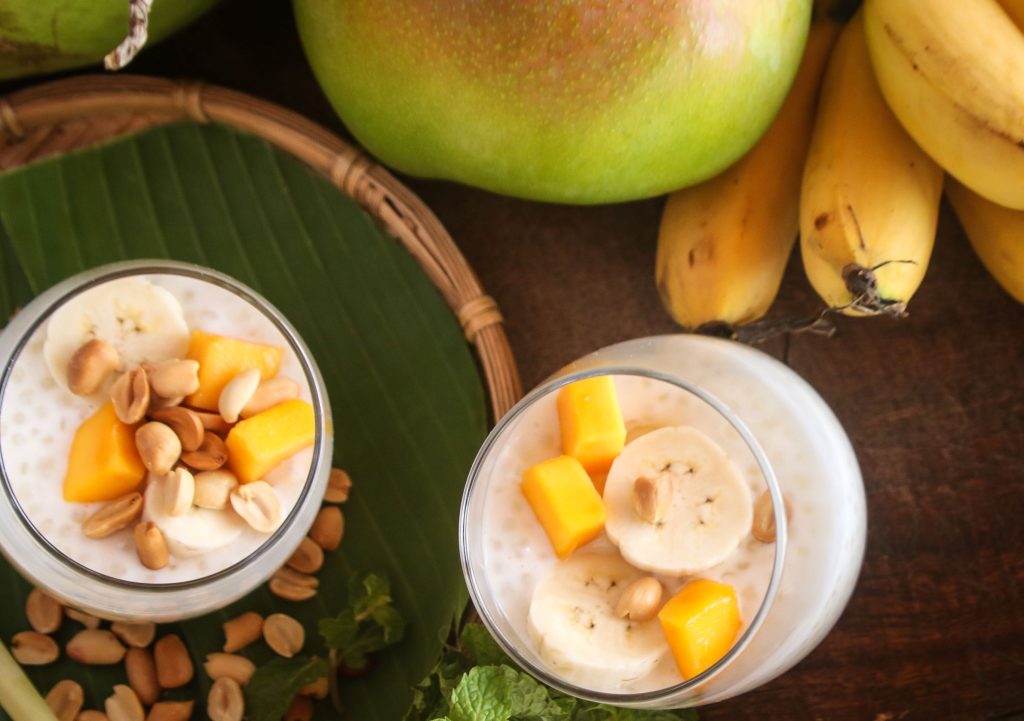
Jacobs: At first, we were so busy closing hotels and managing employee issues—and everything, every day, was so depressing. Our senior group meets daily, and we got to a point where it was like, guys, we’ve got to get past this “bad stuff” mode—there’s nothing more to close. So for the last couple of months, our work groups have been intensely focused on thinking about who will we be when we come back fully (in two or six months, or whenever it is). How do we broaden and deepen what we do in wellness and sustainability? Yes, there are obvious things like hygiene and privacy, but that’s just a given that everyone must focus on. Our mission for the last nine years has been all about wellness and reconnection, and the brains at Six Senses are figuring out how to explode those concepts in ways that make the content even more tangible. I don’t want to give it all away just yet, but we will add super cool ideas that go deeper, particularly around the human piece, the spirit piece, and yes, even around love. We’ve got a lot going on, and when we come back out, our vision and programming will be refreshed and hopefully even more relevant.
GWI: With your resorts closed, you created “At Home with Six Senses,” bringing your wellness experiences online, free to all. Nobody in hospitality moved faster in “going virtual,” and it’s a democratic move. Talk about this digital experiment. Will you stick with an online Six Senses post-pandemic?
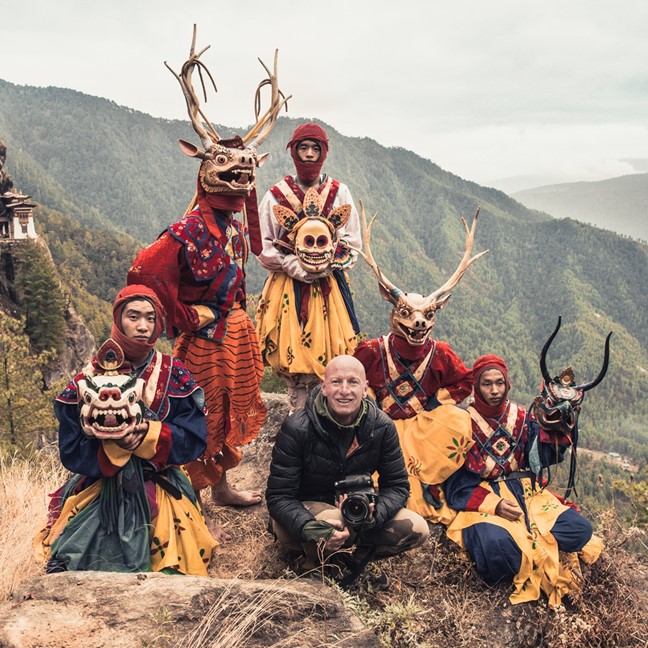
Jacobs: We were shutting down, had zero time and bandwidth, and we’re a small senior team, maybe 30–40 people in all. But Anna Bjurstam, our wellness pioneer, was resolute about creating this online platform, and she has driven it forward with a small, overworked team. In literally five days, a handful of people created all the content for “At Home,” which was initially very wellness-focused: meditations, yoga, etc. We’d never done this (I’ve never been on Facebook Live in my life!), and we had all kinds of technical issues at first. We weren’t prepared, and we didn’t care because we knew we had to do it. We needed to be out there and provide something the world and our customers needed. It was very raw, very unproduced, and that has been the beauty of it. It comes across as real, even with all its hair and warts. We didn’t want to be marketing our hotel, taking people on virtual tours of rooms and amenities. We wanted it to say, this is who we are as a brand; this is what we care about.
It has expanded so much over these months. We are now running twice a day on Facebook and Instagram, and we started “Friends of Six Senses” every Sunday, where Anna interviews interesting personalities. So many companies jumped fast into the digital fitness/yoga/meditation space, so we kept the wellness programming but went wider: We’re doing cooking classes, activities, all kinds of things. Our GMs are doing interesting, sweet things from their hotels—whether walking people through a historic forest or experiencing bath time for goats. Some segments are getting 20,000 views.
We will continue with digital experiences post-virus. It’s just too good not to. It’s been a fascinating, successful experiment for us.
GWI: Since we’re all dreaming, armchair travelers now, tell us about a few Six Senses projects ahead.
Jacobs: We were set to open Six Senses Shaharut in Israel in April but will now launch sometime in December. We’re choosing the right moment and want to make a little noise. There’s really nothing like it in Israel: It’s an extremely cool, beautiful property in the Negev desert near a little village and not hard to get to as it’s about 25 minutes away from the big, new airport that serves Eilat—which is hard to believe because when you get to the resort, you would think there’s nothing for days. We have 60 suites and villas carved into the desert with 360-degree desert views, a beautiful spa and pools, a serious wellness component, and our own camel farm to take people on incredible excursions into the desert and to do our own milk and cheese.
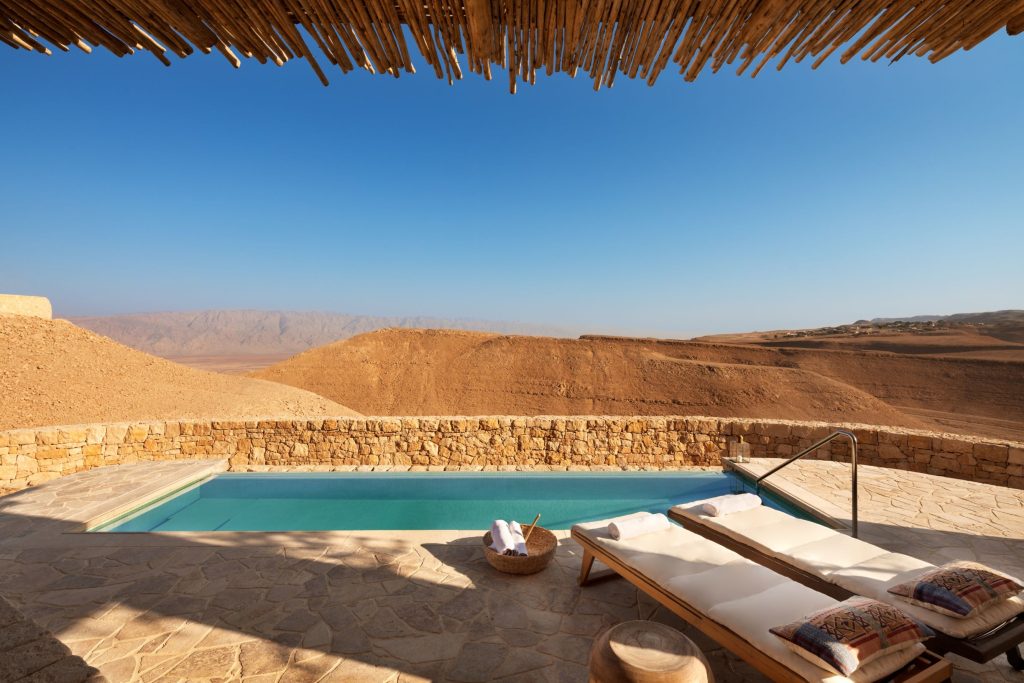
In late 2020, we open Six Senses Fort Bawara in Rajasthan, India, which is set in a gorgeously and sensitively restored 14th-century fort that incorporates a palace and two temples once owned by the Rajasthani Royal Family. Six Senses Ibiza is set for the middle of 2021, a 25-acre resort and residential community perched on the northern tip of the island on a perfect bay.
In general, we’re really bullish, and so are the developers we work with because inquiries about doing deals have not slowed down. If you don’t believe the world has come to an end (and if you do, you should probably just go home), it’s frankly a good time to start hotel projects: If you start today, you’re open in maybe three years—and pricing is now more competitive.
Sadly, there will be a huge rush in hospitality to snap up distressed projects—and plenty of cash-rich private equity firms that specialize in distress. There will be many transactions, but that’s not what we do. People will come to us and say, Can you rebrand this hotel? We’re looking at existing hotels because, every now and again, you find something that has the potential to be truly transformed: properties with great bones and history that just need a new point of view and the capital to realize that—such as the successes we’ve had at properties like Douro Valley, Portugal, or Kaplankaya, Turkey.
GWI: What’s ahead in the Americas? I feel the US wellness travel market needs you. Any news?
Jacobs: We have a project in Costa Rica and are looking closely at a couple of things in Brazil that we may announce soon. We’re obviously excited about Six Senses New York, our first urban wellness club, hotel and residences project. We were ready to open at the end of the year, but construction stopped in NYC, and we lost about three months. So, I would say a Spring 2021 opening.
What’s interesting is that we’ve hired a dedicated head of development for North America, Andrew Miele, who just started to work with us about three months ago and is an incredible guy who came from Four Seasons. Typically most development people have never seen a bad deal; it’s all about the deal. Well, we’re not like that. For us, every property has to make sense from all kinds of angles, and Andrew is truly into wellness and sustainability. He’s been super active and is churning up many things. We’re looking at projects everywhere: in upstate New York, California and Florida. We will be in North America, and much is percolating, although I can’t announce too much yet. It’s a stay-tuned kind of thing…
We want to hear from you
Which travel segments do you think will rebound first? Has the pandemic changed the focus and offerings? Leave a comment below…
























































Yes – I launched the digital online magazine Power Magazine International from England in Lockdown as I was specializing in Luxury high end travel experiences called Royal Journeys. I was I must say quite astounded at the interest from legendary individuals pleased to be featured on a conscientious publishing platform that gives readers a first hand insight as to the creation or founding of their conic brand or company . As to our first three issues circumnavigating the globe , it was important to go to the source and so we included legendary names like Egyptian former Minister of Antiquities Dr Zaid Hawass and Persian businessman Edward Zahakian who arrived in London just before the downfall of the Shah and established Davidoff of London and in South Africa Francois Lawrence Anthony spoke candidly of how it was being married to the Elephant Whisperer and now running Thula Thula Game Reserve with the matriarchs that attended his graveside burial . As to this issue I would love to link with Six senses and especially enjoyed Neil Jacobs in-depth perception of quality over quantity and the categorical shift in how we travel and why . I am still travelling and upgraded flights and will be featuring Wellness design legend Clodagh , in Issue 4 our Wellness edition . As you know she applied her magical alchemist touch to Kaplankaya . I am extremely Interested in future focus especially New York , Costa Rica , Brazil and Ibiza and creating an extended article on Six Senses and talk wellness leading the rise from the armchair travel as selective needs and the conscientious shift in why we vacation or want to escape to a more utopian place.
THANK YOU NEIL! CAN’T WAIT TO BOOK MY CLIENTS INTO SIX SENSES AGAIN!!
This is all interesting. I too have been in the spa/welness industry for over 35 years and have visited many of Six Senses locations. In the meantime, living in beautiful Sonoma Valley (Carneros area) has given me a focus on things that are important to life & people. in general. Travel is great, but after you have done so much of it, (twice with trips around the planet) it’s not so special any more no matter how great the resorts are. Tent camping in the Jordan Desert,, Maldives, Costa Rica, etc. etc. Now it’s just great to be in California where I can drive to the beach, the mountains, to the lakes & up the coast. Just my 2 cents.
EVA M. Jensch
It’s just amazing to keep positive thinking moving forward. A lot of Inspiration ideas and make people dream to travel again. Life is absolutely wonderful while we let it open and experienced.